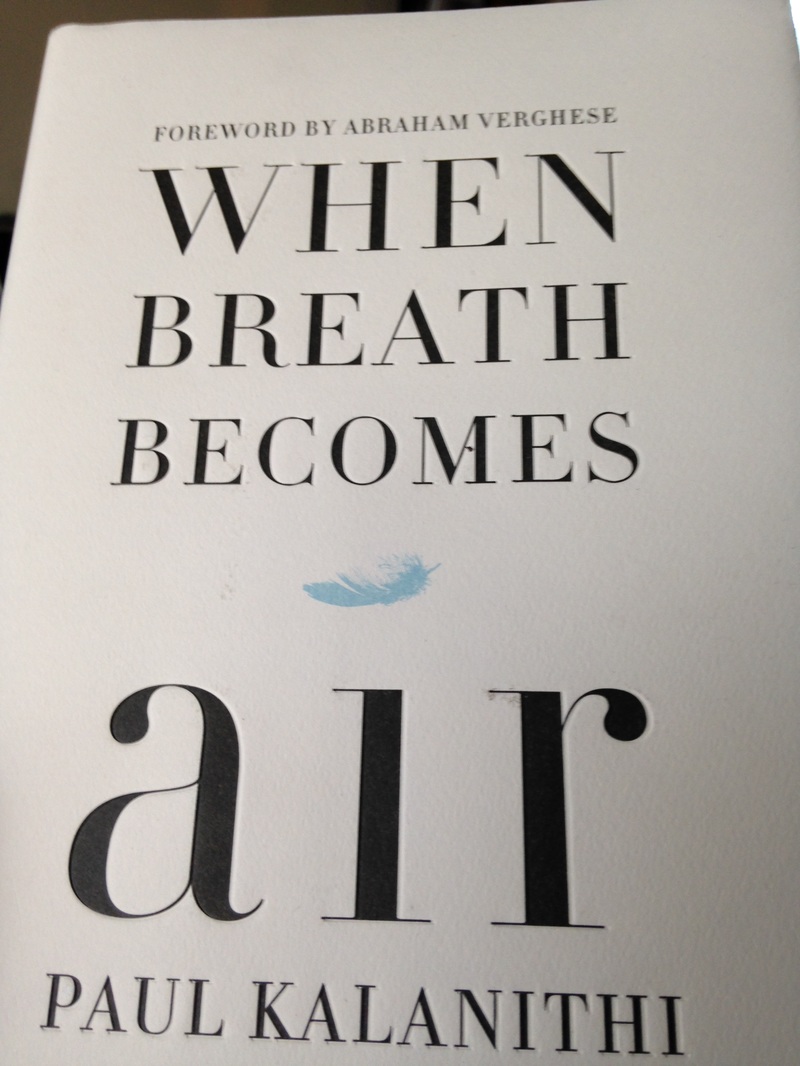Two paragraphs stuck with me in that essay:
The path forward would seem obvious, if only I knew how many months or years I had left. Tell me three months, I’d just spend time with family. Tell me one year, I’d have a plan (write that book). Give me 10 years, I’d get back to treating diseases. The pedestrian truth that you live one day at a time didn’t help: What was I supposed to do with that day? My oncologist would say only: “I can’t tell you a time. You’ve got to find what matters most to you.”
I began to realize that coming face to face with my own mortality, in a sense, had changed both nothing and everything. Before my cancer was diagnosed, I knew that someday I would die, but I didn’t know when. After the diagnosis, I knew that someday I would die, but I didn’t know when. But now I knew it acutely. The problem wasn’t really a scientific one. The fact of death is unsettling. Yet there is no other way to live. (Emphasis mine)
Everyone succumbs to finitude. I suspect I am not the only one who reaches this pluperfect state. Most ambitions are either achieved or abandoned; either way, they belong to the past. The future, instead of the ladder toward the goals of life, flattens out into a perpetual present. Money, status, all the vanities the preacher of Ecclesiastes described, hold so little interest: a chasing after wind, indeed.
Yet one thing cannot be robbed of her futurity: my daughter, Cady. I hope I’ll live long enough that she has some memory of me. Words have a longevity I do not. I had thought I could leave her a series of letters — but what would they really say? I don’t know what this girl will be like when she is 15; I don’t even know if she’ll take to the nickname we’ve given her. There is perhaps only one thing to say to this infant, who is all future, overlapping briefly with me, whose life, barring the improbable, is all but past.
That message is simple: When you come to one of the many moments in life when you must give an account of yourself, provide a ledger of what you have been, and done, and meant to the world, do not, I pray, discount that you filled a dying man’s days with a sated joy, a joy unknown to me in all my prior years, a joy that does not hunger for more and more, but rests, satisfied. In this time, right now, that is an enormous thing.
It's a short book, both easy to read, yet hard to finish because you know what's coming. There was a particular paragraph in the book that made me exclaim, "Yes! Exactly that!" as he put into words something that has been puzzling me about myself.
Lost in a featureless wasteland of my own mortality, and finding no traction in the reams of scientific studies, intracellular molecular pathways, and endless curves of survival statistics, I began reading literature again: Solzhenitsyn's "Cancer Ward," B.S. Johnson's "The Unfortunates," Tolstoy's "Ivan Ilyich," Magal's "Mind and Cosmos," Woolf, Kafka, Montaigne, Frost, Greville, memoirs of cancer patients -- anything by anyone who had ever written about mortality. I was searching for a vocabulary with which to make sense of death, to find a way to begin defining myself and inching forward again. The privilege of direct experience had led me away from literature and academic work, yet now I felt that to understand my own direcct experiences, I would have to translate them back to language. ... I needed words to go forward.
As he so aptly wrote, I'm searching for a vocabulary with which to make sense of death, to find a way to begin defining myself and I need words to go forward. I will forever be grateful for these words that have opened a world of understanding for me.
Dr. Kalanithi's wife, a medical doctor herself, closes the book with this:
Relying on his own strength and the support of his family and community, Paul faced each stage of his illness with grace -- not with bravado or a misguided faith that he would "overcome" or "beat" cancer but with an authenticity that allowed him to grieve the loss of the future he had planned and forge a new one. He cried on the day he was diagnosed. He cried while looking at a drawing we kept on the bathroom mirror that said, "I want to spend all the rest of my days here with you." He cried on his last day in the operating room. He let himself be open and vulnerable, let himself be comforted. Even while terminally ill, Paul was fully alive; despite physical collapse, he remained vigorous, open, full of hope not for an unlikely cure but for days that were full of purpose and meaning.
Dying teaches me about the importance of life. It challenges me in ways that I never imagined. I do not like the process of dying ... I do like the process of living ... and I wish to be fully alive even though I am outwardly decaying. Encouragement to embrace the life within is important to me. I really don't want to hear about overcoming cancer or beating cancer, because beyond a divine intervention, that just isn't going to happen. However, I do not want my dying to get in the way of my living a life of love. I wish to be satisfied with today's joy, not always longing for more and more.
My words are inadequate and I fear they sound sappy. So I'll stop now and trust that you understand what my heart is trying to say.


 RSS Feed
RSS Feed
